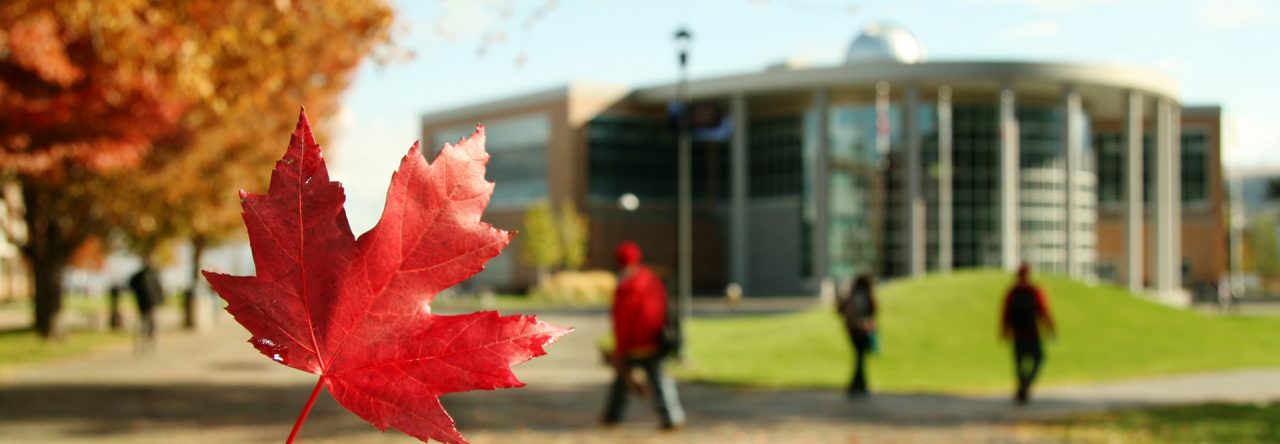By Alana Hoare, Assistant Professor, Education
This post was also shared internally via TRU Connect.
A significant portion of my time at TRU has been helping to enact and embed our values into planning and educational policies and practices. Our shared value of sustainability sits dear to my heart. I’ve been a long-serving member of the Environmental Sustainability Advisory Committee where our conversations frequently centre the improvement of sustainability in terms of the built environment and efficient use of resources. But I’ve often wondered: How does sustainability translate into the classroom?
I found an answer to my question while exploring the literature on open educational practices (OEP). OEPs refer to the use of open pedagogy and technology to support learner-centered environments through social networks and co-creation, use of open educational resources (OER), renewable assignments, and technology. As Clinton-Lisell (2021) summarized so neatly, when faculty adopt OEPs, it provides an opportunity “for students to be knowledge creators rather than only knowledge consumers” (p. 256).
Put another way, faculty that utilize OEPs cultivate classrooms where their students are engaged and active contributors to the learning process.
Now, when I think about sustainability in the classroom, I envision a thriving community of learners creating educational resources that have ongoing value, allowing the efforts of one group of students to benefit those who come after them.
To facilitate this style of active and sustainable learning, faculty may need to explore and adopt alternative assessments. My interest was piqued by the practice of sustainable and scalable[1] assignments, which contrast with disposable assignments that have no purpose once a course is over (Wiley and Hilton, 2018). The concept of renewable, sustainable, or scalable assignments – where student work has value beyond the life of a course – represents a pedagogical shift (Grush, 2014; Seraphin et al., 2019).
Some scholars argue that sustainable assignments have the potential to support representational justice through the equitable expression of historically undervalued and underrepresented voices in educational materials and resources (Lambert, 2018). For a more in-depth discussion on the relationship between renewable assignments and representational justice, I encourage you to read Clinton-Lisell and Gwozdz (2023) article titled Understanding Student Experiences of Renewable and Traditional Assignments.
If you’re wondering, like I was, what a sustainable assignment might look like for supporting active learning in your classroom, here are a few examples:
- editing Wikipedia articles,
- co-creating open textbooks,
- producing video tutorials,
- interviewing local experts on a podcast,
- collaborating on community engagement projects,
- writing test bank questions or case studies, or
- developing course assignments for peers.
Members of the TRU community have become increasingly engaged in open education and open research, contributing their knowledge and expertise to develop OERs (with support from BCcampus), creating and embedding collaborative tools and educational technologies into the classroom (e.g., WordPress, Pressbooks, podcasts, free range Edtech, zero textbook cost courses). The Learning Technology and Innovation Showcase highlights several inspiring examples of TRU faculty and students practicing and promoting non-disposable assignments.
What I appreciate most about the adoption of sustainable assignments is the idea that the role of the instructor is to facilitate discovery through co-creation and the role of the student is to become “increasingly autonomous and to develop critical social consciousness in an open ecosystem” (Smyth et al., 2016). Students are invited to be an active and integral part of the teaching process, and to become open scholars who critique, adapt, and validate open content. This shift moves us closer to the learner-centred environment that is emphasized in our Mission Statement.
References
Clinton-Lisell, V. (2021). Open pedagogy: A systematic review of empirical findings. Journal of Learning for Development, 8(2), p. 255-268. https://doi.org/10.56059/jl4d.v8i2.511
Clinton-Lisell, V. & Gwozdz, L. (2023). Understanding student experiences of renewable and traditional assignments. College Teaching, 71(2), p. 125-134. DOI: 10.1080/87567555.2023.2179591
Grush, M. (2014). Open pedagogy: Connection, community, and transparency. Strategic Directions, Feature. https://campustechnology.com/articles/2014/11/12/open-pedagogy-connection-community-and-transparency.aspx
Lambert, S. R. (2018). Changing our (dis)course: A distinctive social justice aligned definition of open education. Journal of Learning for Development, 5(3), p. 225–244. https://eric.ed.gov/?id=EJ1197463
Learning Technology and Innovation. (n.d.) LT&I Showcase. Thompson Rivers University. https://ltishowcase.trubox.ca/
Seraphin, S. B., Grizzell, J. A., Kerr-German, A., Perkins, M. A., Grzanka, P. R., & Hardin, E. E. (2019). A conceptual framework for non-disposable assignments: inspiring implementation, innovation, and research. Psychology Learning and Teaching, 18(1), 84-97. https://doi.org/10.1177/1475725718811711
Smyth, R., Bossu, C., & Stagg, A. (2016). Chapter 11: Toward an open empowered learning model of pedagogy in higher education. In S. Reushle, A. Antonio, & M. Keppell (Eds.), Open Learning and Formal Credentialing in Higher Education: Curriculum Models and Institutional Policies (pp.205-222). IGI Global. DOI: 10.4018/978-1-4666-8856-8.ch011
Wiley, D. & Hilton, J. L. (2018). Defining OER-Enabled Pedagogy, The International Review of Research in Open and Distributed Learning, 19(4), p. 133–147. https://doi.org/10.19173/irrodl.v19i4.3601
[1] The literature uses the term renewable assignments. However, to avoid misinterpretation with the practice of submitting the same assignment (e.g., essay) in more than one course without the prior approval of the course instructors, Dr. Shannon Wagner and I propose the terms sustainable and scalable.


Leave a Reply